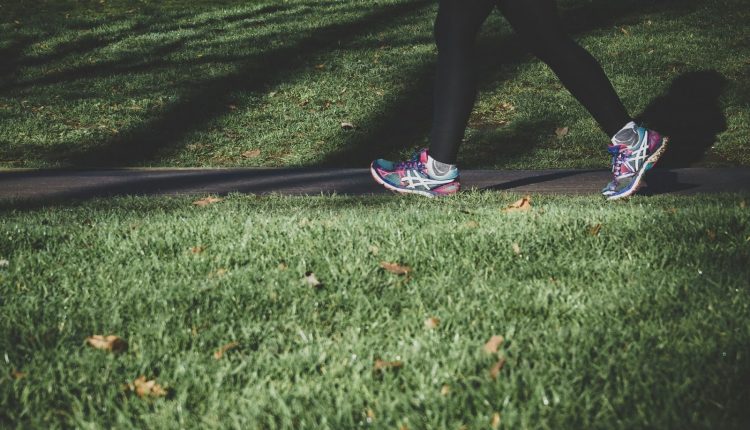Take a Step Towards Happiness: The Joys of Walking
Unlock the simple joy of walking and discover how each step can benefit your mind, body, and soul.
When was the last time you took a walk for no particular reason, other than just to walk? No rushing to an appointment, no chasing after errands—just you, the pavement, and a steady rhythm of steps. Walking, often taken for granted, is one of life’s simplest pleasures. It’s free, accessible, and something that almost anyone can do. Yet, its benefits are often overlooked. Let’s take a stroll through why walking is a powerful activity for both body and mind.
Walking Is Like Hitting a Reset Button
Ever feel like your mind is spinning at a thousand miles per hour? Walking can act like a reset button for the brain. It doesn’t require intense concentration or energy, but that’s the beauty of it. By taking a walk, especially in a peaceful environment, you allow your brain to zone out, free from distractions. Studies have shown that walking can help reduce mental fatigue, boost creativity, and improve problem-solving skills. The repetitive motion of walking helps relax the mind, which makes it a perfect activity for sorting through thoughts, processing ideas, or simply unwinding.
Your Heart Will Thank You
We hear a lot about how important cardio exercise is for heart health, but walking often gets overshadowed by more intense activities like running or cycling. Yet, walking for just 30 minutes a day can significantly improve cardiovascular health. It helps lower blood pressure, strengthens your heart, and reduces the risk of heart disease. Whether you’re walking to work, strolling through the park, or even pacing around your house, each step is a step toward a healthier heart. And the best part? No gym membership or fancy equipment required.
Walking Is a Mood Booster in Disguise
If you’ve ever had a bad day and decided to take a walk to “clear your head,” you probably felt a little better by the end of it. There’s actual science behind that feeling. Walking releases endorphins, those “feel-good” hormones that can elevate your mood and reduce anxiety. It doesn’t matter whether you’re walking around the block or through a scenic trail—your brain gets a boost from the fresh air, natural light, and the simple act of moving your body. Some even say walking works as well as more intense exercises for improving mental health.
Strengthen Muscles Without the Strain
Not everyone wants to hit the gym or lift heavy weights to build strength, and that’s where walking comes in. Although it’s not an intense strength-building activity, walking still engages many of your muscles. Every time you walk, you’re using your legs, hips, and core, helping to tone and strengthen those areas over time. Plus, walking is a low-impact activity, meaning it’s easier on your joints compared to running or other high-impact exercises. If you’re looking for a way to stay fit without feeling sore the next day, walking could be your best friend.
Walking Sparks Conversations and Connections
Walking doesn’t have to be a solo adventure. In fact, it can be a great way to connect with others. Whether it’s a stroll with a friend, a family member, or even your dog, walking invites conversation. Without the distractions of screens and noise, you can engage in deeper conversations or simply enjoy each other’s company. Walking with someone else also has the added benefit of holding you accountable to get moving. You’re less likely to skip a walk if you know someone’s counting on you to join them!

Fresh Air and a Fresh Perspective
There’s something magical about stepping outside and breathing in fresh air. Whether you’re walking through a bustling city or a quiet neighborhood, being outside gives you a break from the four walls of your home or office. The change of scenery can be a great way to shift your perspective, especially if you’re feeling stuck or overwhelmed. Even if it’s just a short walk around the block, you might find yourself coming back with a new outlook, or at the very least, feeling recharged.
Walking Helps You Sleep Like a Baby
Struggling to fall asleep or stay asleep? Walking could be your secret weapon. Regular physical activity, even something as light as walking, can help regulate your sleep patterns. Walking increases your body’s production of melatonin, the hormone that helps control your sleep-wake cycles. Plus, if you walk during daylight hours, the exposure to natural light can help reinforce your body’s natural circadian rhythm, making it easier to fall asleep at night. So, if counting sheep isn’t cutting it, try counting your steps instead.
Step Away from Stress
Walking has this amazing ability to melt away stress. Whether it’s the physical act of moving your body or the mental escape it provides, walking can help reduce cortisol levels (the hormone responsible for stress). The great thing is that you don’t need a specific walking route or plan. Just getting up and moving for a few minutes can be enough to take the edge off a stressful situation. Think of walking as a moving meditation: your feet keep moving forward, and with each step, you leave a little bit of that stress behind.
Discover Hidden Gems in Your Own Neighborhood
Sometimes, we get so caught up in our routines that we overlook what’s right in front of us. Walking gives you the opportunity to slow down and notice things you might otherwise miss. Maybe it’s a cool café that just opened up or a park you’ve never explored. Walking encourages you to pay attention to your surroundings in a way that driving or even cycling doesn’t. It can turn an ordinary day into a mini-adventure, helping you discover new places or just appreciate the beauty of your own neighborhood.
Walking Is an Excuse-Free Exercise
Let’s be honest, sometimes the hardest part of exercising is actually getting started. But with walking, there are almost no barriers. You don’t need special gear, a membership, or even a specific time slot. You can walk almost anywhere and at any time. Whether you’ve got 10 minutes or an hour, walking is always an option. And if the weather’s bad? Walking indoors, like at a mall or even around your house, can still give you the same benefits. It’s the ultimate no-excuse exercise.
The World Looks Different at a Slower Pace
In our fast-paced world, slowing down can feel like a luxury, but walking forces you to take things one step at a time—literally. By walking, you get to experience the world at a slower, more deliberate pace. You notice the small details: the crunch of leaves underfoot, the chirping of birds, the feel of the breeze. This slower pace not only allows you to appreciate your surroundings more but can also give you a sense of mindfulness. It’s not about the destination, but the journey itself.

Walking Is the Ultimate Me-Time
With life pulling us in so many directions, finding time for yourself can be tough. Walking, even for just 10-15 minutes, can be a way to carve out that essential “me-time.” Whether you listen to your favorite playlist, podcast, or simply enjoy the sound of silence, walking offers a chance to focus on yourself. It’s a time to think, reflect, or even just zone out for a bit. No distractions, no demands—just you and the road.
Walking Fuels Creativity and Inspiration
Ever feel stuck on a problem or struggling to come up with new ideas? Walking can unlock your creative side. There’s something about the steady rhythm of walking that helps stimulate brain function and encourages free-flowing thoughts. Many writers, artists, and thinkers have sworn by the power of a good walk to spark inspiration. The movement gets your blood flowing, while the change of scenery offers fresh stimuli for the brain. So, the next time you hit a mental block, try stepping outside—your next big idea might just be a walk away.
In the End, Every Step Counts
At the end of the day, walking is about more than just exercise. It’s about reconnecting with yourself, your environment, and the people around you. Whether you’re looking to boost your health, clear your mind, or just enjoy a break from your daily routine, walking offers all that and more. So, lace up those shoes, step outside, and take a walk—you might be surprised at just how much joy those simple steps can bring into your life.
Incorporating walking into your routine doesn’t require any drastic changes or big time commitments. All it takes is a willingness to take that first step, and from there, the benefits will follow.

